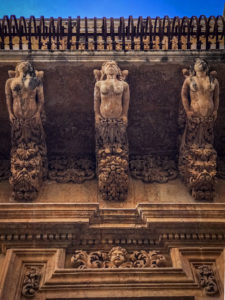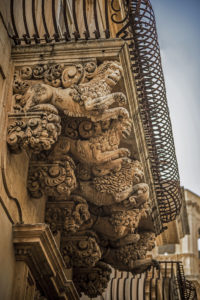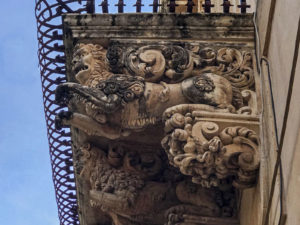Corbels
are one of the most characteristic elements of the palaces of the Val di Noto. They make the façades of the noble buildings unique and animated. Carefully designed and sculpted by the best artisans, the corbels of Palazzo Nicolaci liven up the street that shares the same name.
Each one was created according to a precise design, “the virtues of the Nicolaci”. You can see winged horses with their front legs reaching out to freedom, and winged figures looking to the future.
The central door is followed by sirens, symbols of spirituality, and the balcony of
chimeras
, monstrous mythological creatures with a lion’s face, symbols of power.
At the beginning and end there are two large corbels dedicated to the Nicolaci family, who went from being simple merchants to barons then princes, all of which is depicted by the metaphor of a child who grows up and becomes an adult.
It is a symbolic building of Baroque architecture and the political and economic power achieved by the family.


